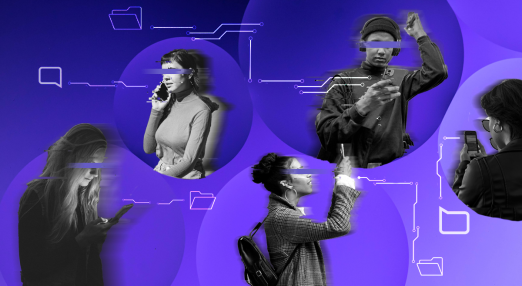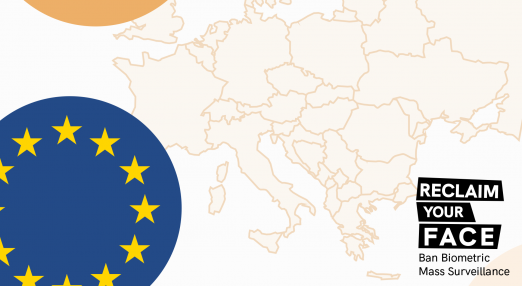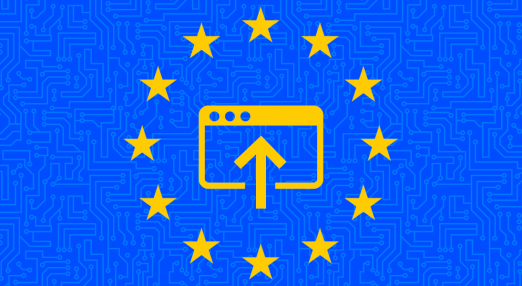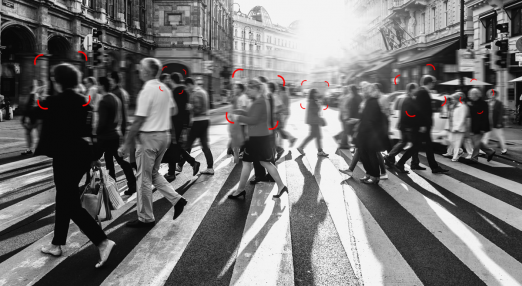Our work
EDRi is the biggest European network defending rights and freedoms online. We work to to challenge private and state actors who abuse their power to control or manipulate the public. We do so by advocating for robust and enforced laws, informing and mobilising people, promoting a healthy and accountable technology market, and building a movement of organisations and individuals committed to digital rights and freedoms in a connected world.
Filter resources
-

Opinion on the Passenger Name Record CJEU case
In Case-817/19, Belgium’s Constitutional Court has asked the EU Court of Justice whether the PNR Directive (2016/681) is compatible with the Charter of Fundamental Rights. The hope must be that the Court will stand up for the rights of individuals, enforce the Charter of Fundamental Rights, and declare the PNR Directive (like the Data Retention Directive) to be fundamentally in breach of the Charter.
Read more
-

2021: Looking back at digital rights in the year of resilience
We started 2021, hoping to leave the tremendously challenging year of 2020 behind. The Covid-19 pandemic has had a devastating impact on our societies, causing unprecedented harm to people and economies. If 2020 was the year of the pandemic shock, 2021 was the year of resilience. We had to learn to live in a constant uncertainty of what it would take to keep defending human rights: Could we work and walk down the streets without being constantly surveilled? Would efforts to tackle disinformation distort legitimate content, or would they bring down Big Tech instead? Will 2022 be 2021 2.0?
Read more
-

Nani Jansen Reventlow receives the Felipe Rodriguez Award 2021
The Felipe Rodriguez Award is an important part of Bits of Freedom’s annual Big Brother Awards. Each year the organisation present this award to someone who, in their own, bold way, has done something remarkable for your right to privacy. This year the award goes to Nani Jansen Reventlow.
Read more
-

A beginner’s guide to EU rules on scanning private communications: Part 1
In July 2021, the European Parliament and EU Council agreed temporary rules to allow webmail and messenger services to scan everyone’s private online communications. In 2022, the European Commission will propose a long-term version of these rules. In the first installment of this EDRi blog series on online ‘CSAM’ detection, we explore the history of the file, and why it is relevant for everyone’s digital rights.
Read more
-

Reclaim Your Face impact in 2021
A sturdy coalition, research reports, investigations, coordination actions and gathering amazing political support at national and EU level. This was 2021 for the Reclaim Your Face coalition – a year that, despite happening in a pandemic – showed what the power of a united front looks like.
Read more
-

Digital Services Act: EU Parliament’s key committee rejects a filternet but concerns remain
The European Union's Digital Services Act (DSA) is a big deal. It's the most significant reform of Europe’s internet platform legislation in twenty years and the EU Commission has proposed multiple new rules to address the challenges brought by the increased use of services online. EU members of Parliament (MEPs) showed that they listened to civil society voices: Even though the key committee on internal market affairs (IMCO) did not follow the footsteps of the ambitious DSA reports from last year, MEPs took a stance for the protection of fundamental rights.
Read more
-

Romania uses the EECC Directive implementation to extend communication surveillance
A new proposal to extend communication surveillance and to intercept encrypted communications was hidden by the Romanian Government in the national implementation of the European Electronic Communications Code (EECC Directive) and was passed without any discussion in the Romanian Chamber of Deputies on 7 December 2021.
Read more
-

Council and Parliament find provisional agreement on the Data Governance Act
On 30 November, the European Parliament and Council provisionally agreed on the final version of the Data Governance Act (DGA). The text, which will still require final approval by both institutions, is the first legislative element of the European data strategy to emerge in its final form. While the final text is yet to be published, here is an overview of the main elements of the Act.
Read more
-

EU: Data retention strikes back? Options for mass telecoms surveillance under discussion again
In June 2021 the European Commission sought the views of member states on ways to reintroduce the bulk retention of telecoms traffic, location and internet connection data on everyone in the EU. Responses from seven member states, published here, show a divergence of views on what data to retain and when, but a majority in favour of new EU legislation.
Read more
-

Italy introduces a moratorium on video surveillance systems that use facial recognition
On 1 December 2021, the Italian Parliament introduced a moratorium on video surveillance systems that use facial recognition technologies. This law introduces, for the first time in an EU Member State, a temporary ban for private entities to use these systems in public places or places accessible to the public. This moratorium is an important achievement: it recognises the dangers posed by technologies such as facial recognition to people's rights and freedoms. The moratorium will be in force until 31 December 2023 at the latest, unless a new law is introduced on the subject of biometric surveillance before that date.
Read more
-

Has the Parliament effectively wielded the Digital Services Act to challenge platform power? The verdict is, somewhat.
Today, the European Parliament Committee on the Internal Market and Consumer Protection (IMCO) has approved its much-anticipated report on the Digital Services Act (DSA). The DSA affects how intermediaries like Google and Amazon regulate and influence user activity on their platforms, including people's ability to exercise their rights and freedoms online. The DSA also aims at limiting the negative impact of the most powerful online platforms on people and puts limits on how EU Member States can interfere with people’s free expression online.
Read more
-

EDRi welcomes our new Policy Advisor: Sebastian Becker
European Digital Rights is proud to announce that Sebastian Becker has joined the Brussels office team as our new Policy Advisor. Sebastian will focus on supporting EDRi’s work on platform regulation, including the Digital Services Act and Digital Markets Act along with policies related to disinformation and hate speech.
Read more
